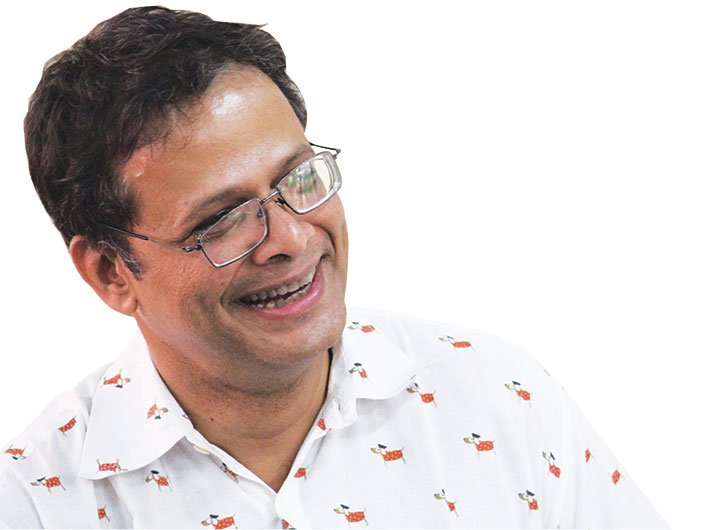Prolific writer and acclaimed journalist Jerry Pinto has edited and written many literary works in different genres. His work ranges from children’s fiction and magazine columns to poetry, and topics from Mumbai to Bollywood. His book about actress Helen titled Helen: The Life and Times of an H-Bomb won the Best Book on Cinema Award. His 2012 novel Em and The Big Hoom, a memoir of living with a mentally afflicted mother, was a critical success that won him The Hindu Literary Prize, the Windham-Campbell Literature Prize and the Crossword Book Award. He will receive the Sahitya Akademi Award 2016 for the book in February. Pinto is also a social activist and translator of Marathi books.
You’ve written poetry, non-fiction, fiction, journalistic articles along with translation. Which is most challenging?
Every form has its challenges. In fact, if there were a form without a challenge, it would probably be of no interest to any writer.
What is most integral to translating? Do you think it changes the essence of the original work?
Every word you change in a sentence changes that sentence. If you change a text’s language, you change its essence. Every translator knows this. But such readers as we have for translated texts know this and they account for it and they read it anyway. It has not stopped us from loving, with an English reader’s love, everyone from Anna Akhmatova (Russian) to Matsuo Basho (Japanese) to Constantine P Cavafy (Greek) to Jacques Derrida (French) to Saadat Hasan Manto (Urdu) and Tukaram (Marathi)...
Do you think more multilingual writers should turn to translation?
I don’t think there can be any ‘shoulds’ about translation. You’re not going to be paid much because not too many copies are bought. So you can only do it out of love for language, for the text, for translation itself as an act of language. And who could ever legislate about love? Having said that, we need lots more translators and lots more translation, but we need sensitive, committed translators. That’s a tall order.
What determines your choice of texts?
I must love the book and want to convey it to another audience.
What does the English language mean to you?
It is my space of dream, my patrimony, my mother’s favoured tongue, my nightmare. When I am in pain, I pray in English. When I love, I love in English. When I loathe, I loathe in English.
Whom do you admire?
I admire all those who give voice to the voiceless, who stand up for what is right, who have compassion for others, who choose empathy over judgement, who reach out across barriers, who ignore difference, who celebrate the many magics of being human.
Biggest challenge you have faced?
I am constantly plagued by self-doubt.
What do you think are the major governance issues in our country?
I believe we think that governance is someone else’s responsibility. Good governance is actually a cooperative, collective endeavour. You cannot frighten people into behaving well. You can only persuade them that it is in their best interests if we all behave well. If we want corruption to end, why then, the easiest way is to stop being corrupt. No, you cannot pick up that phone and call your old school friend to make sure your daughter gets a seat. No, you cannot bribe that traffic cop. No, you cannot expect the country to be better than you are. But we’d rather legislate the change for others.
A memorable experience?
I suppose it would be that morning when Michael Kelleher of the Windham-Campbell Prizes, administered by the Beinecke Library at Yale University, called to say I had won it.
What are you currently busy with?
I am translating Jevha Me Jaat Chorli by Baburao Bagul and working on my next novel. I am thinking about how to contribute more to SPARROW, the Sound and Picture Archives for Research on Women, now that they have made me a trustee. I am working on a project with Chirodeep Chaudhuri, the brilliant photographer, on city libraries. I am trying to put a mammoth student magazine that takes in 30 years of student journalism to bed for the Sophia SCM department where I have been teaching for several years.

